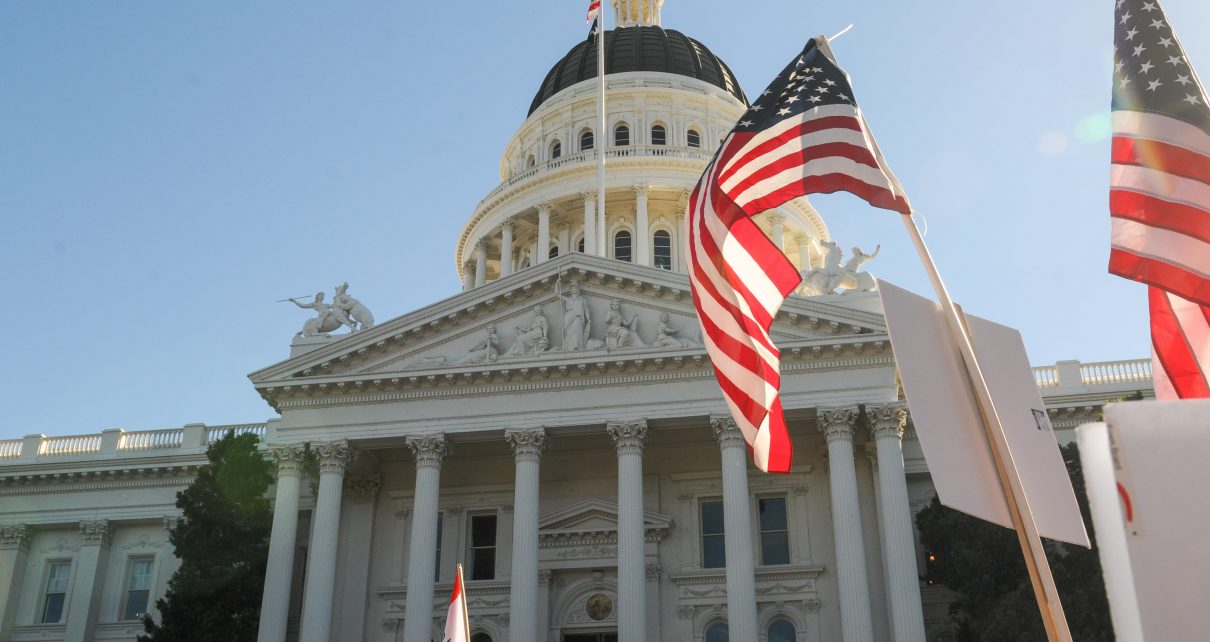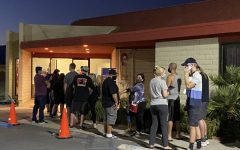
Election Recounts in California
The person challenging the ballot must state the reason for the challenge
By Chris Micheli, February 5, 2022 3:30 pm
California law has a number of statutes governing election recounts in this state. They are contained in Division 15, Chapter 9, in Sections 15600 to 15649. Article 1 deals with general provisions. Section 15600 states that this chapter applies to all elections. The recount of votes cast for candidates for presidential electors is also governed by this chapter.
Section 15601 requires the Secretary of State to adopt regulations no later than January 1, 2008, for each voting system approved for use in the state and specify the procedures for recounting ballots, including vote by mail and provisional ballots, using those voting systems.
Article 2 deals with elections official-ordered recounts. Section 15610 specifies that, if no election contest is pending wherein a recount of the ballots in a precinct has been or will be ordered, the elections official may order that the ballots voted in the precinct be publicly recounted if both of the following apply:
- The elections official has reasonable cause to believe the ballots in the precinct have been miscounted.
- The elections official has examined, under oath, the precinct board members or, in the case of ballots counted by a central counting system, the counting board members, and they are unable to explain the returns of their respective precincts.
Article 3 deals with voter-requested recounts. Section 15620 provides that, following completion of the official canvass, any voter may, within five days but not later than 5 p.m. on the fifth day, file with the elections official responsible for conducting an election in the county wherein the recount is sought a written request for a recount of the votes cast for candidates for any office, for slates of presidential electors, or for or against any measure, if the office, slate, or measure is not voted on statewide. The request must specify on behalf of which candidate, slate of electors, or position on a measure (affirmative or negative) it is filed.
Section 15621 states that, following completion of the official canvass any voter may, within five days beginning on the 31st day after a statewide election, file with the Secretary of State a written request for a recount of the votes cast for candidates for any statewide office or for or against any measure voted on statewide.
Additionally, any voter may file with the Secretary of State a written request for a recount of the votes cast for candidates for any statewide office or for or against any measure voted on statewide within five days following completion of any post-canvass risk-limiting audit.
A request filed is required to specify in which county or counties the recount is sought and specify on behalf of which candidate, slate of electors, or position on a measure (affirmative or negative) it is filed.
Section 15621.5 provides that, if more than one voter requests a recount of the same office or measure, and at least one request is for a manual recount, the county elections official of a county subject to multiple requests as described in this section is required to conduct only one manual recount of the ballots subject to recount, the result of which is controlling.
Section 15622 allows the request to specify the order in which the precincts are to be recounted. Section 15623 provides that, any time during the conduct of a recount and for 24 hours thereafter, any other voter may request the recount of any precincts in an election for the same office, slate of presidential electors, or measure not recounted as a result of the original request.
Section 15624 provides that the voter or the campaign committee, represented by the voter filing the request seeking the recount must, before the recount is commenced and at the beginning of each day following, deposit with the elections official a sum as required by the elections official to cover the cost of the recount for that day.
Section 15625 requires the recount to be conducted under the supervision of the elections official by special recount boards consisting of four voters of the county appointed by the elections official. Each member of a recount board receives the same compensation per day as is paid in the jurisdiction within which the recount is being conducted to members of precinct boards, other than inspectors, to be paid out of the appropriate public treasury.
Section 15626 requires the recount to be commenced not more than seven days following the receipt by the elections official of the request or order for the recount and it must continue daily, Saturdays, Sundays, and holidays excepted, for not less than six hours each day until completed.
Section 15627 states, if the votes subject to recount were cast or tabulated by a voting system, the voter requesting the recount must, for each set of ballots cast or tabulated by a type of voting system, select whether the recount is to be conducted manually, or by means of the voting system used originally. Only one method of recount may be used for all ballots cast or tabulated by the same type of voting system.
Section 15628 provides that, not less than one day prior to commencement of the recount, the elections official must post a notice as to the date and place of the recount and notify the following persons of it in person or by any federally regulated overnight mail service:
- All candidates for any office the votes for which are to be recounted.
- Authorized representatives of presidential candidates to whom electors are pledged if the votes to be recounted were cast for presidential electors.
- Proponents of any initiative or referendum or persons filing ballot arguments for or against any initiative, referendum, or measure placed on the ballot by the governing body the votes for which are to be recounted.
Section 15629 requires the recount to be conducted publicly. Section 15630 allows all ballots, whether voted or not, and any other relevant material, to be examined as part of any recount if the voter filing the declaration requesting the recount so requests.
No examination of any ballot can include touching or handling the ballot without the express consent of the elections official or the election officer supervising the special recount board. No ballot may be touched or handled during the examination unless the elections official or the elections officer supervising the special recount is present to observe the examination.
Section 15631 allows, on recount, ballots to be challenged for incompleteness, ambiguity, or other defects, in accordance with the following procedure:
- The person challenging the ballot must state the reason for the challenge.
- The official counting the ballot must count it as he or she believes proper and then set it aside with a notation as to how it was counted.
- The elections official must, before the recount is completed, determine whether the challenge is to be allowed. The decision of the elections official is final.
Section 15632 provides that, in lieu of the returns as reported in the official canvass, upon completion of the recount showing that a different candidate was nominated or elected, that a different presidential slate of electors received a plurality of the votes, or that a measure was defeated instead of approved or approved instead of defeated, there is entered the result of the recount in each precinct affected, which result is the official returns of those precincts for the office, slates of presidential electors, or measure involved in the recount.
Section 15633 requires a copy of the results of any recount conducted to be posted conspicuously in the office of the elections official. Section 15634 specifies that this chapter does not authorize the opening or recounting of ballots for any precinct except for the purposes specified, or limit other provisions of law regarding an election contest or recount.
Article 4 deals with court-ordered recounts. Section 15640 provides that, when requested by the board of supervisors or the grand jury, the district attorney may petition the superior court for an order directing a public recount to be made of ballots tabulated by a voting system in any precincts in the county that it designates for any election occurring not over 25 days before the request.
The request and petition is required to be made only on one or more of the following grounds, and the order may be issued only with a finding that there is probable cause to believe that one or more of the grounds exist:
- Misconduct by anyone sufficient to make it likely that the result of the election was affected as to the successful candidates or propositions or tie holders.
- Errors or failures, whether electronic, mechanical or otherwise, in the safekeeping, handling, tallying, counting, recording, or certification of the ballots or votes cast, sufficient to make it likely that the result of the election was affected as to the successful candidates or propositions or tie holders, or sufficient to cast substantial doubt on the substantial accuracy of the results without regard to affecting any result.
Section 15641 provides that, if court action or an official recount is initiated while the program is on deposit, the Secretary of State is required to make the program available to the court or the elections official in whose jurisdiction the court action or recount takes place, upon written request.
Section 15642 requires any tape, diskette, cartridge, or other magnetic or electronic storage medium used in the programming of vote totals are to be kept in a secure location and, if there is a recanvass of votes, the officer entrusted with the magnetic storage medium is required to submit his or her affidavit stating that they are the true media used in the election and have not been altered.
Article 5 deals with state-funded recounts. Section 15645 allows, within five days after the Secretary of State files a statement of the vote the Governor may order a state-funded manual recount of all votes cast for a statewide office or state ballot measure in specified circumstances.
Section 15646 requires, upon the Governor or Secretary of State ordering a recount, the Secretary of State must notify the elections official of each county and direct the county elections officials to recount all the votes cast for the office or for and against the state ballot measure.
Section 15647 states that certain provisions of Article 3 apply to this article, unless otherwise provided. Section 15648 authorizes the Secretary of State to adopt, amend, and repeal rules and regulations necessary for the administration of this article. Section 15649 requires a county elections official to be required to conduct a recount pursuant to this article to the extent funds are appropriated for purposes of this article in the annual Budget Act or other statute.
- Frequently Asked Questions about Legislative Review of State Agencies - April 18, 2024
- Legislative Records Are Not Proprietary to the State - April 17, 2024
- Frequently Asked Questions about OAL’s Disapproval Process for Regulations - April 17, 2024





Here’s the smoking gun about the security exploits found in Dominion Voting Systems that were explained away and approved by corrupt former CA Secretary of State, Alex Padilla :
https://votingsystems.cdn.sos.ca.gov/vendors/dominion/dvs510staff-report.pdf